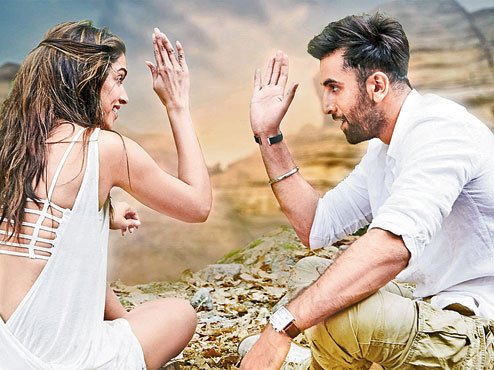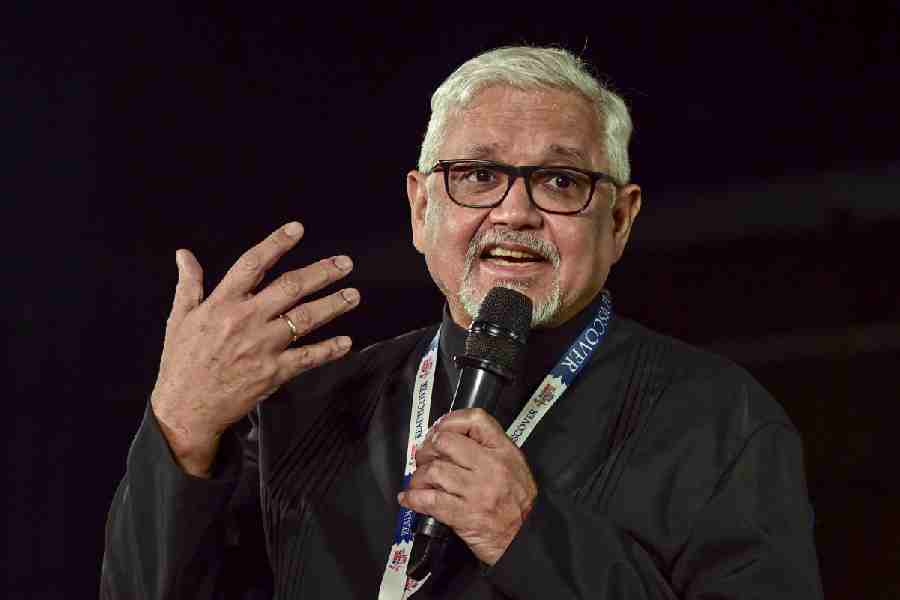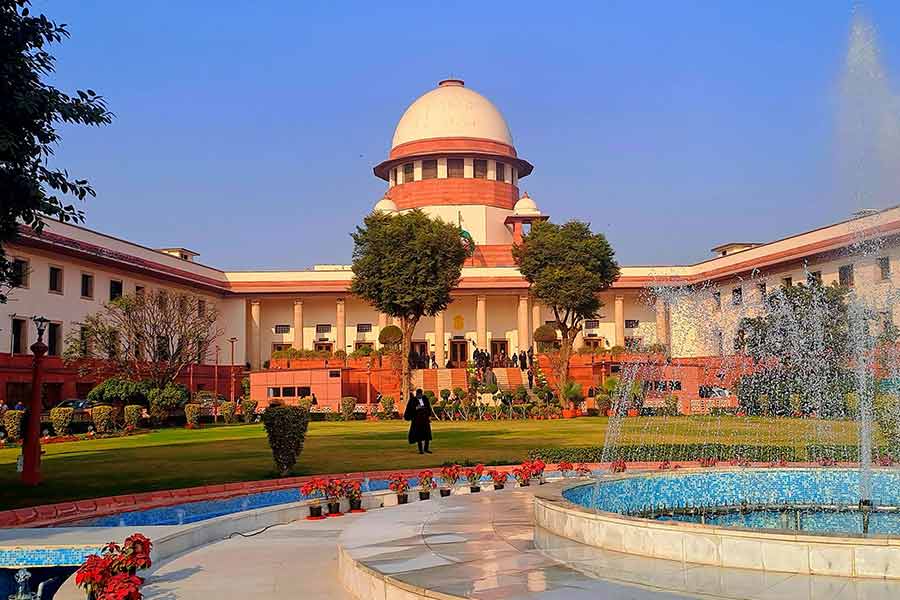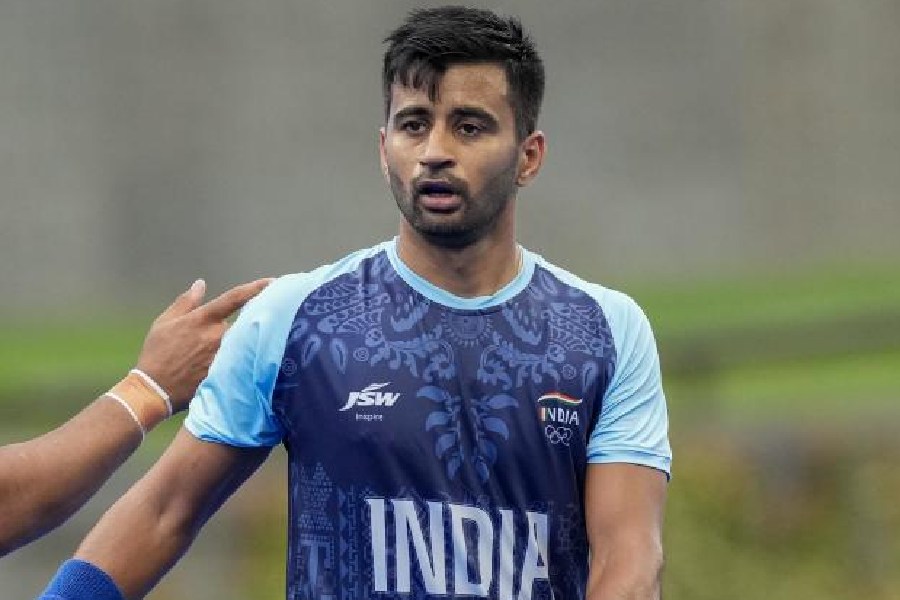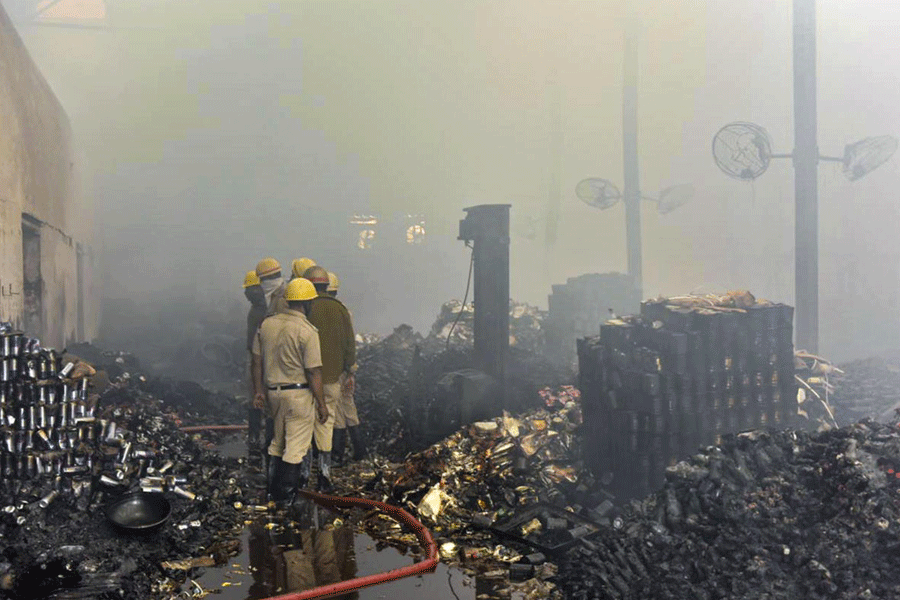Tamasha (U/A)
Director: Imtiaz Ali
Cast: Ranbir Kapoor, Deepika Padukone, Javed Sheikh, Sushma Seth, Piyush Mishra
Running time: 152 minutes

You remember that exact moment you fell in love. You remember that exact moment it was all over. Only she and you knew about those moments. Those moments, those little whirlpools of memory igniting cascades of emotion at the slightest of scratches. You thought only you two were there. And then you watch that moment in a film, with two different people, playing out exactly the way it happened to you, dancing on the same scars that you thought were healed.
Imtiaz Ali has no right to open up personal wounds, film after film, leaving you shaken and stirred. He couldn’t have known what happened to you. Could he have been there? How could he have been there? But then how does he slide on that invisible nerve, that nerve hanging there daily somewhere between the heart and the world? How does he go inside your story while telling his story?
Because Tamasha tells you every story is the same. Ved (Ranbir Kapoor) believes it. All his childhood he would hear stories from the neighbourhood Baba (Piyush Mishra) about Ram, Sita, Heer, Ranjha, Romeo, Juliet and almost like The Arabian Nights, those stories would be left over for another day and that next day the stories would start mingling and end up waltzing together. They are the same story, he is the same hero.
Ved grows up to be another story. The story of a man woken up every morning by the alarm, the quick brushing of the teeth, the chowing down of the corn flakes, driving to the office, the “hellos” and the “good mornings”, the jargon-happy board meeting, the perfect weekend date, the ring-in-a-slice-of-cake engagement, the marriage, the kids. No, wait. Rewind. The date is with Tara (Deepika Padukone), a girl from once upon a time.
When he was Don and she was Mona Darling. When they were in Corsica. When they promised they will only lie to each other, not even know each other’s names. When they would role-play at every turn of the pebbled roads, at every sip of the French wine. When they would sing, when they would dance, when they would make love. When he was the hero.
She returned the ring! But wasn’t she the one who came looking for him in Delhi, a few years after that one week in Corsica? “Socha theek ho jayega... hamesha theek ho jaata hai,” she explained. But she never recovered. And now she says ‘no’! Because she’s in love with Don and Ved might look like him and might love her as much but they are not the same guy.
At this point, in any other movie, Ved would throw away his mechanical work life and wear the Don’s cape again to win back his girl. Not in Tamasha. Not in Imtiaz’s understanding of human relationships. Here, it is Tara who comes to him again, desperately seeking love and ready to ditch Don, but Ved by then has started plunging in the deep, dark recesses of his damaged conscience. For him to love, he has to first kill the villain inside him and again become the hero of his story.
It’s easy to say that every Imtiaz Ali film is the same, where the boy and the girl meet at a time in their lives when they can’t love each other. And they have to travel distances and bide time and fight inner evils to emotionally connect once again. But in that familiar template are characters who are astonishingly real and talk in a language which doesn’t sound scripted. Tamasha in that regard is his most evolved work.
Not that it’s always smooth sailing. The prologue where Ved the kid listens to stories and imagines them with people and spaces he knows, is a little laboured. Also the Andar Ki Baat chapter in the second half where Ved decides to change his storyline is brilliantly performed by Ranbir, especially the monologue at his Shimla home, but the talk sometimes tends to slip over to the preachy side of things.
It is when Deepika and Ranbir are together that the film shines the brightest. If you thought the lady couldn’t better Piku, you have to see her in Tamasha. See her eyes. Eyes toasted in mischief, eyes brewed in happiness, eyes washed with pain, eyes that will make you laugh and cry. Eyes that will make a man change himself. Over and over again.
Ranbir is back in business. That effortless charm, that easy transformation, that quiet breakdown... they all return in their full glory. And because he was Imtiaz’s Rockstar, that sweet little intertextuality of inner angst devouring external poise works magically.
A.R. Rahman’s music has always touched the deepest of chords and here too it underlines every emotional upheaval. Agar tum saath ho is the one which stays with you the most. Ravi Varman, who shot Barfi!, makes Ranbir and Deepika look as fetching as those meadows in Corsica and those mountains in Shimla. Howrah bridge and Flurys notwithstanding, Calcutta has a blink-and-miss guest appearance.
No one understands the pain of love better than Imtiaz. Yes, you knew that before. But here he doesn’t stop at that. Somewhere he makes you believe you were indeed born with the big S on your chest and your undies outside and you have to wear shirts and trousers and glasses to blend in with the world. And that’s where Tamasha evolves from just a great love story into a critique on the whole human race.
Pratim D. Gupta
Did you like/ not like Tamasha? Tell t2@abp.in

